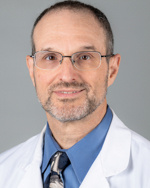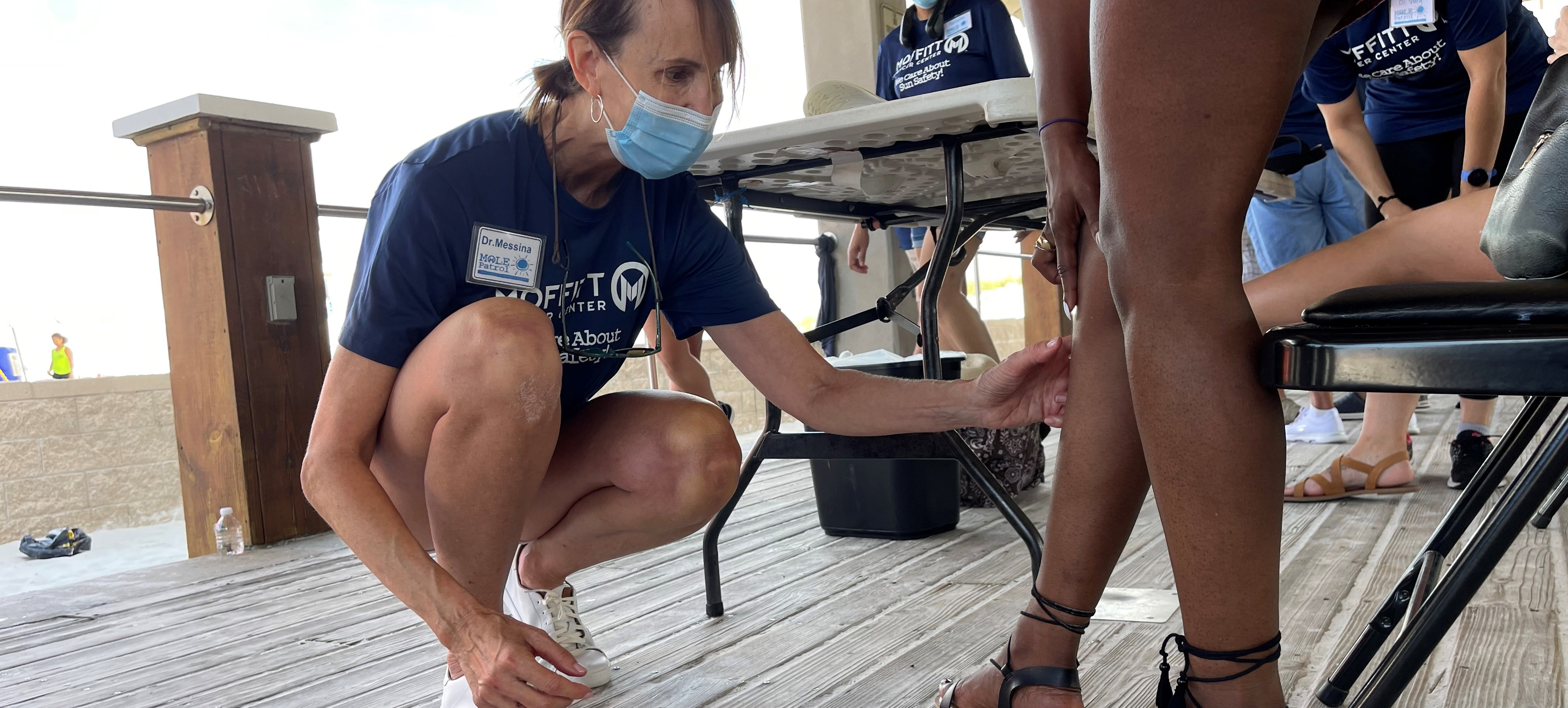More than 200 Screened at Moffitt’s Mole Patrol Event at Pier 60
Roger Fortier never misses a Moffitt Cancer Center Mole Patrol event. He credits these free community cancer screenings with alerting him to the treatment he needed that ultimately saved his life. That’s why he returned to Pier 60 on Clearwater Beach on July 31.
“Moffitt has treated me so well and these screeners discovered carcinoma and melanoma on my back, stage IV, before,” the Largo resident said. “I didn’t know I had anything on my back, so get checked out.”
Fortier was among more than 200 people who visited Moffitt experts at the pier after the cancer center took a year off in 2020 because of the COVID-19 pandemic. Like in previous years, experts from both Moffitt’s Department of Cutaneous Oncology and its Head & Neck-Endocrine Oncology Department were on hand to screen anyone interested.
“We are here looking for skin cancers and head and neck cancers, two types of cancers that are very common and if diagnosed early, the treatment is easier and more likely to be curative,” said Dr. Vernon Sondak, chair of the Department of Cutaneous Oncology. “If we find any abnormalities, we give people a checkout document that shows what we found and encourage to get follow-up treatment. It doesn’t have to be at Moffitt, but we are happy to take care of them.”

This marked the third time that both cancer clinics teamed up at the pier. COVID safety protocols were a big part of this year’s event; all guests getting screened were asked to wear face coverings and all screeners remained masked while working under the pavilion.
The only time guests were asked to remove those face coverings were during the actual screening process.
“Head and neck screening is pretty quick, we look inside your mouth and at the back of your throat,” said Dr. Nicholas Prichard, a clinical fellow at Moffitt. “We check a couple of glands, the spit glands, on each side of your face. We feel around the neck and the thyroid gland in the middle of the neck.”
Head and neck screeners also look in the ears and nose for anything concerning. It’s a noninvasive process that can give attendees peace of mind or alert them to the need for a more thorough exam later.
Each year, more than 55,000 Americans are diagnosed with head, neck and oral cancers. The majority are caused by tobacco use, excessive alcohol consumption or ultraviolet light exposure. And with the recent increase in oral cancer diagnoses related to human papillomavirus infections, early detection is more important than ever.
Sharing concerning findings can be difficult, but it’s an important part of the job. Ashley Culbreath, a physician assistant at Moffitt, was a screener at this year’s event and recalled the first time she found a concerning patch of skin on a visitor.
“It was three years ago here at the pier and he had a pigmented lesion on his back that was later diagnosed as a melanoma,” she said. “Screening at events like this is different than the work we do at Moffitt. On campus, patients know they have cancer, and they know why they are there. In this environment people are asking for help and it’s easier to break the news of the findings to them because we can encourage them to get help in the early stages of their diagnosis.”
It’s a journey all too familiar to Fortier. He said he hopes that if anyone does have suspicious findings from the event that they heed the advice of the experts and find follow-up care.
“Getting screened is important and seeking out that proper care can save your life,” he said. “I’m grateful for these screeners and Moffitt has treated me just great.”



